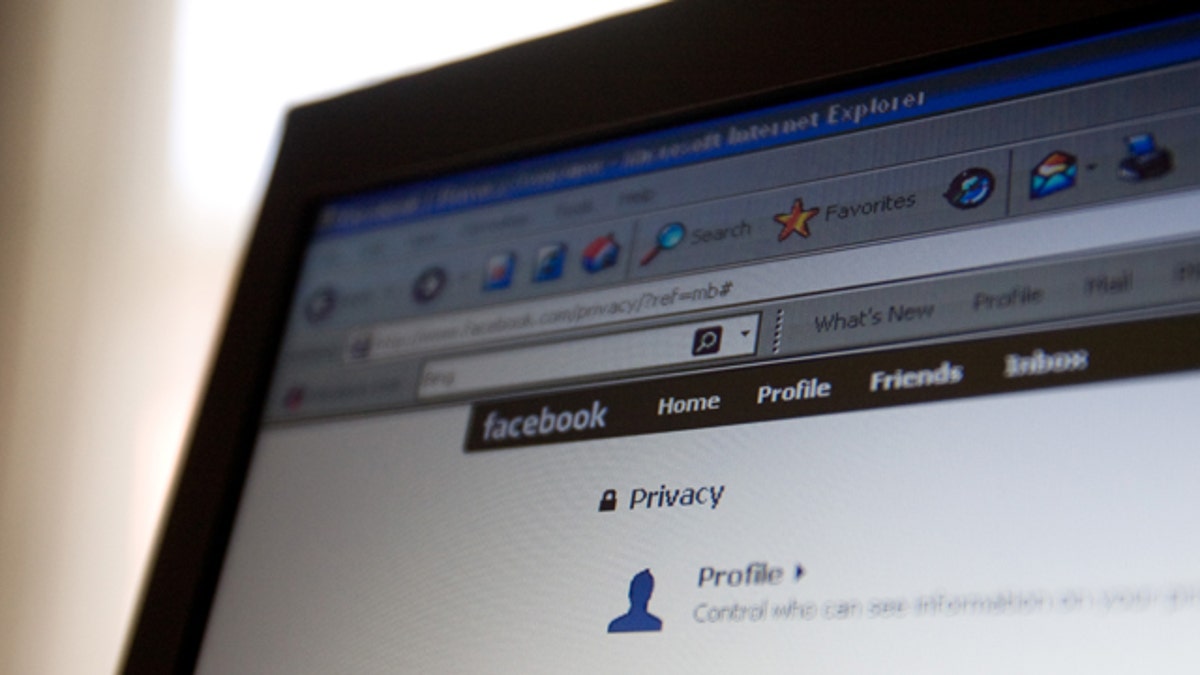
A Facebook user edits privacy settings. (AP Photo/The Canadian Press, Sean Kilpatrick)
NEW YORK — Facebook is changing its privacy settings to give users more control over who sees the information they post on their personal pages.
Beginning Wednesday, the networking Web site took the rare step of requiring its more than 350 million users to review and update their privacy settings.
The new controls are designed to simplify the cumbersome privacy settings that have confounded many people — which is one reason why only 15 percent to 20 percent of Facebook users have specified their privacy settings. Facebook hopes people now will get comfortable with sharing even more information.
Privacy advocates still worry that users will expose too much about themselves, inadvertently or not. It remains to be seen whether the shift will mean fewer surprises for people who have unintentionally shared party photos with their bosses.
As part of the changes, Facebook users will be able to select a privacy setting for each piece of content, such as photos or updates, that they share on the site — as they share it. The choices are "friends" only, "friends of friends" or "everyone," which means not just Facebook users but everyone on the Internet. (The exception: Minors won't be able to share their content with everyone. For people under 18, the "everyone" setting will send information to "friends of friends.")
There is also an option to customize groups of friends — such as "college buddies" — for certain kinds of updates.
Jules Polonetsky, co-chairman and director at the Future of Privacy Forum think tank in Washington, praised how this process resembles the way people decide what to share in their day-to-day lives. He said putting the controls "when you need it, right there, is far better than putting it in a `privacy' or `help' location" somewhere on the site.
Facebook is now asking users to review and alter their settings through a tool that explains the privacy changes. People will be able to keep their old settings or take recommendations from Facebook.
Some privacy advocates said the overhaul will actually reduce the amount of control Facebook users have over personal data. Their lists of friends and pages they are fans of will now be easily viewable by the public, for instance.
That is troubling because "even something as seemingly innocuous as your list of friends can reveal a great deal about you," Kevin Bankston, senior staff attorney at the Electronic Frontier Foundation, wrote in a blog post. While it is still possible, he noted, to hide your list of friends from the public, the setting is hard to find — which goes against Facebook's aim of simplifying the privacy settings.
As promised, Facebook is also getting rid of its geographic networks, because many of them — take "New York" or "Australia" — have gotten too big. There had been 5.7 million people in the London network, for example.
If users were previously part of such a geographic network, this location will now be listed in their profiles under "current city." Other networks, for schools and workplaces, are staying.
The changes have no effect on advertising on the site, said Elliot Schrage, vice president of global communications and public policy at Facebook. But he added that by giving users such granular control over the content they share, Facebook is encouraging more sharing and a greater connection to the site.
"If users feel more confident with our service, they will use our service more," he said. "And the more they use our services the more benefits we derive."
